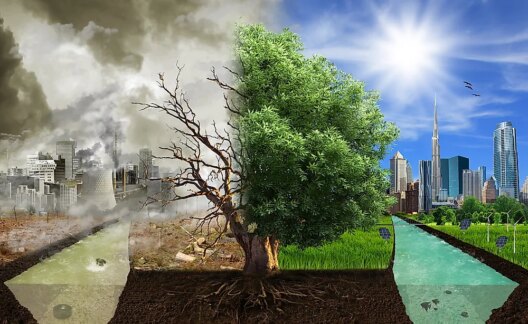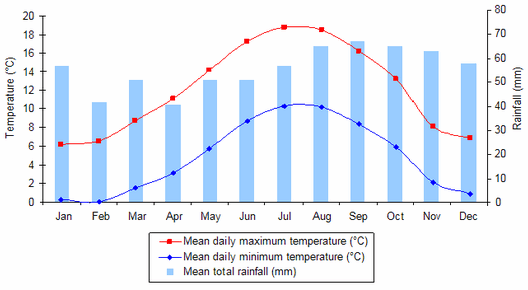Climate Week 2025 is set to take place from March 12 to March 20. This important week serves as a powerful catalyst for global dialogues and actions surrounding climate change, uniting individuals, communities, organizations, and governments worldwide. It is an invitation to engage in a conversation that is not merely about awareness but about transformation. By providing a platform for discourse, Climate Week empowers citizens to voice their concerns, share innovative solutions, and learn from each other.
As the effects of climate change become increasingly palpable—from severe weather phenomena to shifting biodiversity patterns—the urgency for change underscores every discussion. Climate Week acts as a pivotal moment, where we can collectively recalibrate our priorities and commitments. This annual event is not only about highlighting challenges but also about celebrating progress and reinforcing the resolve required to face impending obstacles.
Global participation in Climate Week symbolizes a movement toward sustainability. Organizations, large and small, as well as grassroots activists, engage in activities that promote environmental stewardship. Events range from organized forums to artistic expressions that illustrate the narrative of our planet’s plight. Moreover, educational institutions worldwide often incorporate the programming into their curricula, thereby enlightening future generations about their role in environmental conservation. As the global populace grapples with diverse climates and geographical challenges, the varied perspectives brought forth during this week enrich the dialogue significantly.
One of the focal points of Climate Week is the commitment to reducing carbon footprints. During this time, innovative ideas often spark discussions that lead to tangible actions. This could include implementing greener business practices, advocating for renewable energy, or mobilizing local communities to engage in ecological preservation activities. With emphasis on collaboration, Climate Week invites everyone to rethink their daily habits, encouraging a shift from complacency to proactive engagement. Interestingly, many find that making small changes—like reducing waste, conserving water, or opting for public transport—can lead to significant collective impact.
The theme for Climate Week 2025 emphasizes the interdependence of social justice and environmental sustainability. As discussions around climate change surface, it becomes paramount to recognize that not every community is equally equipped to confront this crisis. Underprivileged areas disproportionately suffer from environmental degradation, and Climate Week seeks to unravel these inequities. This perspective is critical for fostering solidarity and encouraging equitable solutions. The discourse surrounding climate urgency compels us to rethink policies to ensure they are inclusive and beneficial for all communities, regardless of economic status.
Engagement throughout Climate Week 2025 also entails leveraging technology and innovation. The advent of digital communication enables a wider audience to join the conversation. Virtual summits, webinars, and social media campaigns will proliferate, extending the reach of this important dialogue beyond physical limitations. This tech-savvy aspect stands to invigorate traditional discussions, as younger generations step up to advocate for their futures. Their voices, empowered by technology, are often laced with fresh enthusiasm and innovative ideas, thereby piquing curiosity among older generations about sustainable practices.
Moreover, the importance of art and storytelling during Climate Week cannot be understated. Artists and creatives worldwide harness their talents to interpret and communicate the urgency of climate action. Through visual arts, music, literature, and performances, they create emotionally resonant pieces that resonate deeply with audiences, fostering a sense of empathy and shared responsibility. Art transcends cultural barriers, allowing for universal messages about the necessity of acting on climate-related issues. By embedding these themes into our cultural fabric, the narrative becomes more compelling and accessible, encouraging individuals to engage and participate in the wider conversation.
In terms of actionable commitments, numerous companies seize the opportunity during Climate Week 2025 to announce sustainability initiatives or reaffirm existing pledges. Engaging with these commitments fosters a culture of accountability and encourages multilateral collaboration. The private sector’s role in climate action is crucial; partnerships between businesses, governments, and civil societies can drive pioneering solutions that yield mutual benefits. By aligning economic incentives with environmental stewardship, organizations set exemplary models for future endeavors, urging others to follow suit.
As we anticipate Climate Week 2025, it is essential to prepare not only for the event itself but for the post-week advocacy that must follow. The conversations ignited during this period should serve as a foundation for continuous engagement with climate-related issues. Each participant can transform newfound knowledge into proactive commitments at local and global levels, ensuring sustainability remains at the forefront of policy discussions, personal choices, and community actions.
In conclusion, Climate Week 2025 is not just a calendar date; it’s a clarion call to action. It represents a unique chance for individuals, communities, and organizations to engage in meaningful discussions about climate change and environmental stewardship. It invites everyone to rethink perspectives, embrace creativity, and foster collaboration. By coming together during this pivotal week, participants can not only contribute to the global conversation but also catalyze transformative actions that resonate far beyond the confines of March 2025. This journey toward climate resilience is not only necessary—it is an imperative that calls for unwavering commitment and boundless curiosity.







